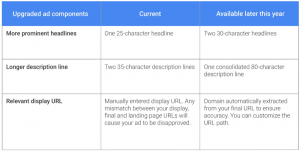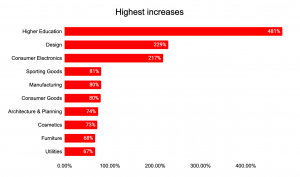
Creating visibility and authority in search comes from understanding how users search and applying strategic optimization to appeal to niche interests. Search engines are designed to help users find information fast; so the more clarity you can deliver in discoverable and readable formats, the more search engines will reward your site. Develop your website and content to appeal to user interests by offering relevancy and value, and search engines will respond by crediting your site with higher rankings. Leverage the tips below to increase your website’s value to users and visibility to search engines.
Understand How Users Search
Leveraging various sources of consumer data is important for developing a clear understanding of target audience interests and behaviors. Through analysis of owned databases, Google Analytics and third party sources such as Facebook, marketers can gain valuable insights to direct content and optimization strategies to increase search authority for all owned digital assets.
For example, marketers can track trends in website usage and social behaviors to identify how individual segments search and interact with content. Identifying target audiences by geographic area, interests and other demographic information allows marketers to build “roadmaps” for optimization. By conducting this initial research on audience behaviors, brands can construct a clear picture of how to draw niche segments with personalized content, keywords and optimization.
Construct Sitemaps
Create an XML sitemap and submit it to Google and Bing to increase exposure. By providing a sitemap, search engines can identify where your content is located and properly index pages for relevancy. Search engines will use this information to deliver more relevant content in searches and catalog value in relation to content on your pages. Check for any issues with indexed pages by using Google Webmaster’s crawl error tool.
Establish Redirects
It is important to connect pages and ensure that your site is clear of any broken links and 404 errors. Additionally, if you have a separate website, such as a mobile site, it is crucial to link those pages together with redirects to improve usability across devices while maintaining authority to a single domain. Google recommends the use of server-side redirects (301s or 302s) instead of JavaScript to connect pages. See how Google crawls your site and monitor redirects and loops with services such as Screaming Frog.
Enhance Tags
Users search differently across devices, so optimizing backend tags can be a challenge. To enhance SEO across desktop and mobile, keep title tags concise and limited to about 40-60 characters, and meta tags within 90 characters. Ensure that all page tags are unique to increase differentiation in page indexing and increase visibility.
Optimize for Mobile
Content and usability continue to play a key role in the development of search authority, and as mobile usage becomes more prevalent it is important to ensure users can seamlessly engage with your site from any device. Desktop versions of websites can frequently create a bad user experience on mobile due to page size, content visibility, broken site features, complex navigation and site speed. 74 percent of users accessing mobile sites reported that they would leave a website after 5 seconds if it has not loaded, and 46 percent of users don’t revisit poorly performing sites.
If Google sees that your site is resulting in a bad user experience it will determine that your content is not offering value and will penalize your site in search rankings. Improve your ranks and user experience by developing a mobile responsive webpage that can seamlessly adjust its page design to deliver a quality experience on any device. Responsive designs reduce the need for specialized design and will eliminate the need for a second mobile website.
Increase Visibility Through Local Optimization
Local SEO has developed a big role in search over the last few years. Optimizing for local search helps make your brand’s locations more visible to individuals searching with a geographical focus, especially on mobile devices. Research from Google shows that 50 percent of mobile users are likely to visit a store after conducting a local search, compared to only 34 percent of consumers on tablets or computers.
Optimize localized content on your website with unique pages for each location to increase search indexing. Utilizing SEO tools to update information on external directory sites such as Yelp and Google Plus will also help boost mobile exposure by increasing listings across the web and providing information. Ensure all information is accurate, up-to-date and complete to offer a consistent user experience across all platforms and search engines.
Conclusion
SEO needs to be a living, breathing part of your digital strategy. To stay visible in search, it is important to monitor industry trends and algorithm updates from search engines. Grow your brands authority by understanding user expectations, developing valuable content and targeting locally. Keep a close eye on user and website data to continuously adjust optimization tactics and stay relevant.
(232)
Report Post






